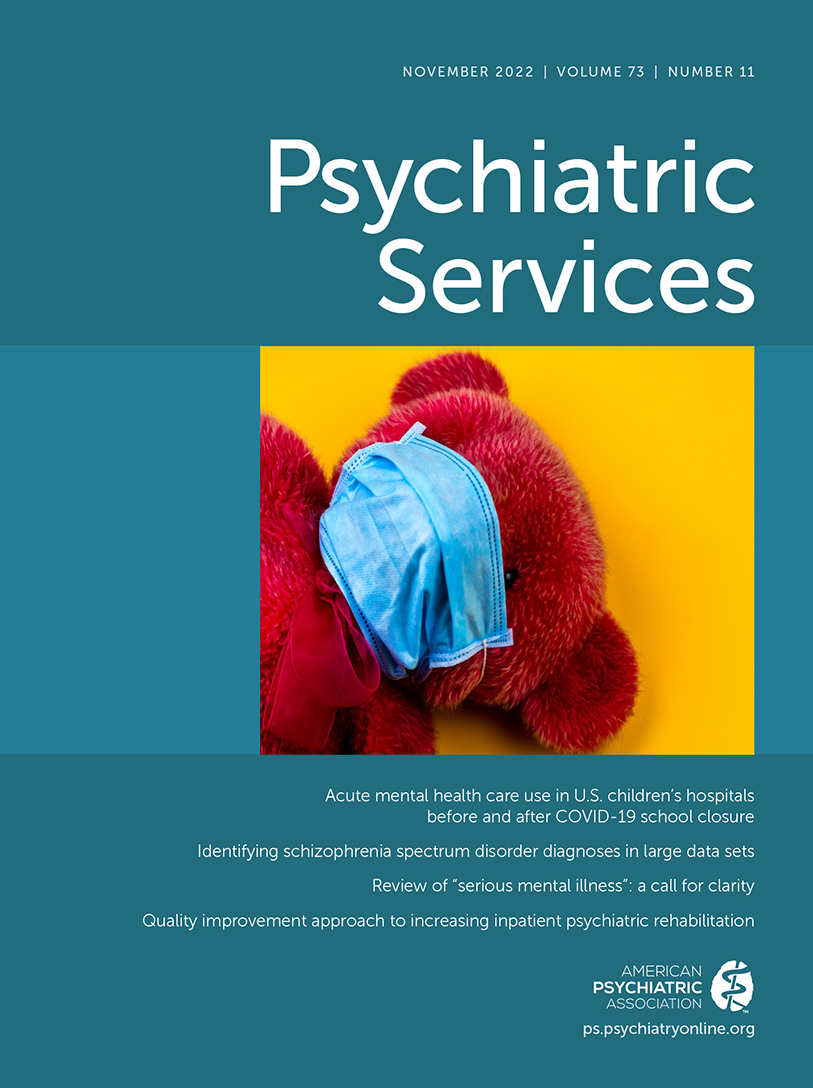Impact of a Targeted Intervention on Hepatitis C Care Among African Americans With Serious Mental Illness
Abstract
Objective:
This study aimed to update findings on the continuum of care for hepatitis C virus (HCV) infection with follow-up data for individuals with serious mental illness and to identify predictors of decisions to decline vaccination.
Methods:
The screening, testing, immunization, risk reduction, and referral (STIRR) intervention has been shown to increase testing and immunization rates. Prevalence of HCV diagnoses, HCV continuum of care, and hepatitis A (HAV) and B (HBV) vaccination were evaluated with laboratory results and chart review.
Results:
The prevalence of HCV was 15% (N=40 of 270 African Americans receiving the STIRR intervention). Of the 40 individuals identified as having HCV, 75% (N=30) accepted referral to treatment, of whom 47% (N=14) achieved sustained virologic response. Nearly 68% (N=155) of those eligible received at least partial HAV/HBV vaccination.
Conclusions:
The STIRR intervention facilitated access to treatment for HCV and high acceptance of hepatitis vaccination. Avoidance proved to be a significant factor in decisions to decline vaccination.



